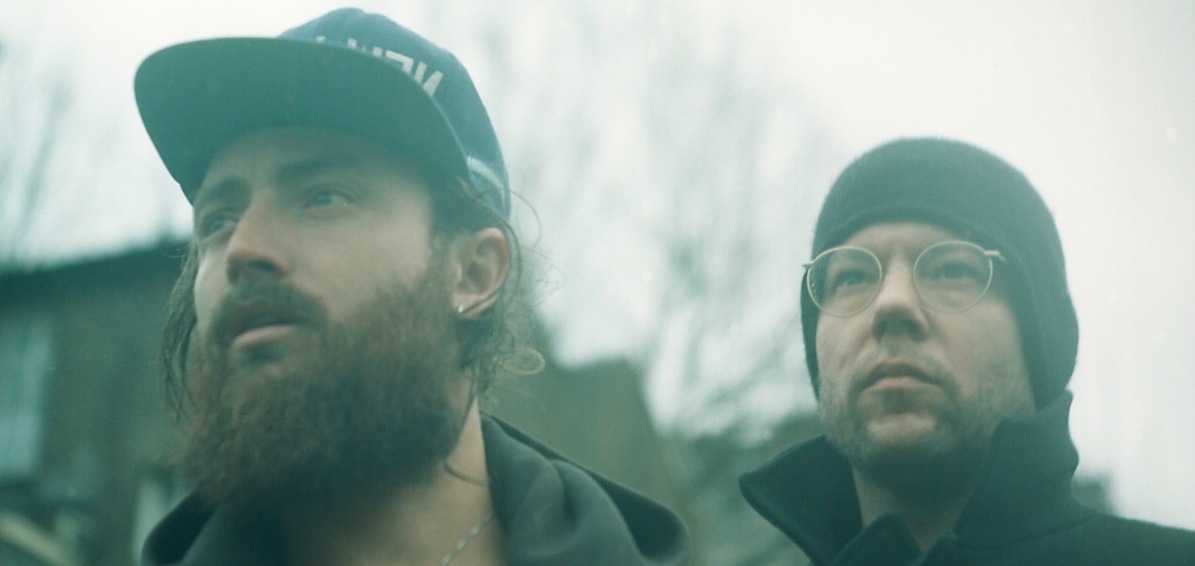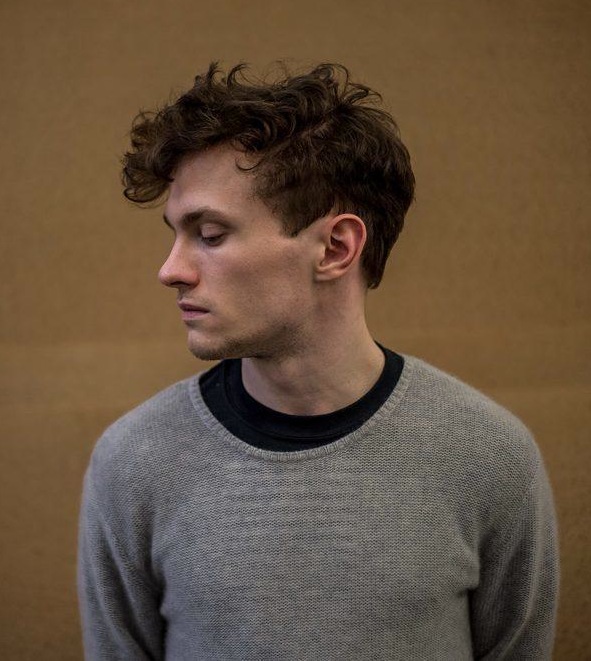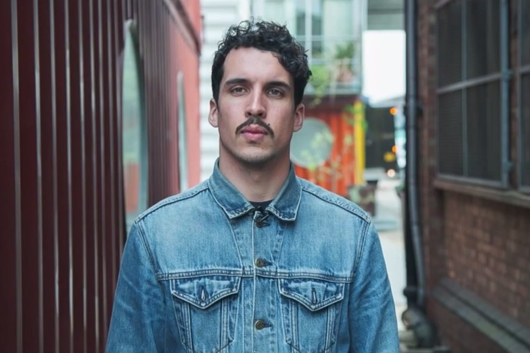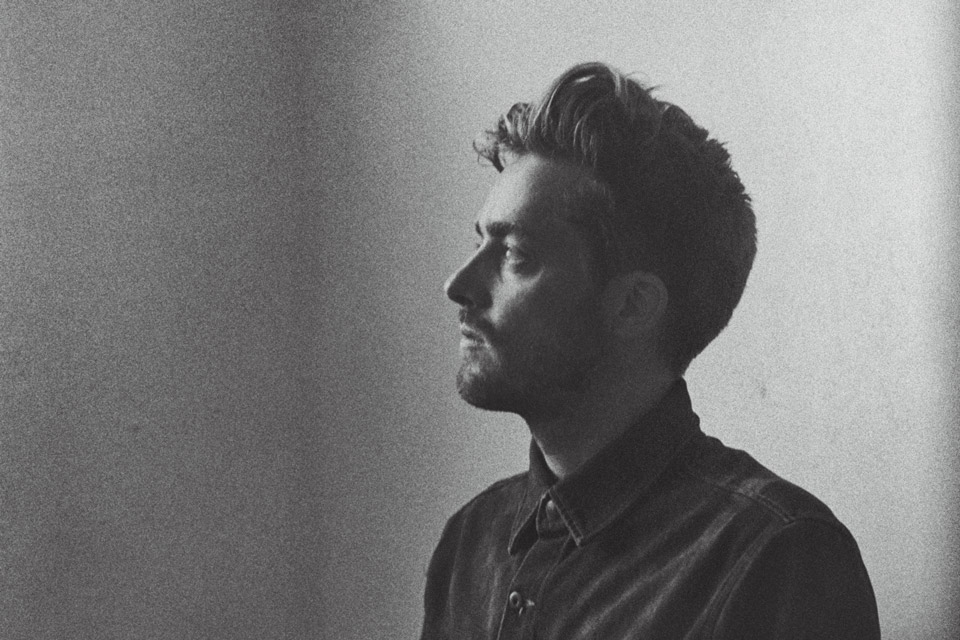Interview: Frank Wiedemann and RY X Prep for the Sacred Ground Festival
Hot on the heels of their gorgeous debut album, the men from Howling discuss their upcoming fest.

Interview: Frank Wiedemann and RY X Prep for the Sacred Ground Festival
Hot on the heels of their gorgeous debut album, the men from Howling discuss their upcoming fest.

Following the release of their stunning debut album, Sacred Ground, the next step for Howling—Ry “RY X” Cuming and Âme’s Frank Wiedemann—is a festival of the same name, co-curated by the two artists and driven by a shared desire to cultivate a sense of artistic community by focusing on intimacy rather than enormity. On July 11, a mere 800 fortunate ticket holders will have gather at the site, a beautiful open-air farmland nestled within the small town of Uckermark, roughly 100 kilometers north of Berlin. The roster of musical acts includes David August, Dauwd and Cuming’s partner in the Acid, Adam Freeland, among others—along with Howling, Âme, and, performing solo, RY X. They’ll be accompanied by a carefully selected array of artistic installations from around the world; the schedule will be absent of any specific timetable, all designed to enhance human connections and leave space for both collaboration and improvisation. Ahead of the festival’s debut, XLR8R spoke with RY X and Wiedemann to learn more about the underlying motivations and visions behind Sacred Ground, and what attendees can expect this year round.
Curating a festival isn’t easy, especially with your busy touring schedules. How did the decision to do this come about, and what were the initial motivations behind Sacred Ground?
RY X: It was just the case that we had an idea – and it seemed great and plausible at the time – that has slowly turned into reality. The motivation was very simple: it’s about bringing amazing music, cool experiences in art and a sense of community to people. That idea so often gets lost in festivals nowadays.
Wiedemann: The starting point was just over a year ago, in early 2014, when we figured out that we had four different bands that we’re playing in and we just thought that it would be really nice to have they playing all together in one place at one time. And this is shown in the line-up: We have Howling, Adam Freeland, RY X, and Âme all there, with many more. We wanted to show people the variety that brings us all together.
Besides being the title of Howling’s album, is there anything behind the name of the festival?
Wiedemann: We thought about this a lot, but chose the same name as the album because it just sounded right. “Sacred ground” explains a lot about the album, and how it came together, because it is all about special places where we recorded it—and the festival will be another case where Ry and I will be doing music together in a special place in a special surrounding.
“Sacred objects aren’t sacred inherently—rather, it is the relationship between people and the object that makes them so.”
RY X: Sacred objects aren’t sacred inherently—rather, it is the relationship between people and the object that makes them so. We are creating the environment for people to have this relationship, but it is ultimately for them to connect with each other and the music in order to create this sacredness.
You’ve got a very small, but amazing, group of artists playing at Sacred Ground. How did you curate the line-up?
RY X: It’s sort of our hub—it’s that simple. We’ve got so many interesting friends that are playing great music, so we just invited them to come and join in. Each artist who is going to play Sacred Ground is a friend, and shares an artistic connection with us in some way. We didn’t curate it to try and be anything more than us getting our friends to go and play outside of a city, which doesn’t happen that often— and we also wanted something intimate rather than a huge festival ground where the peoples’ experiences can be quite distorted.
On the subject of this intimacy, is this what you think will make Sacred Ground stand out in what is already an overcrowded market for festivals?

RY X: Yes. We really wanted to focus on this intimacy—that’s especially important. The focus is on music and community. To be honest, we don’t really like the word “festival”—it’s more like a gathering of people, because the context is lost when you go to these huge festival sites. Howling, RY X, Âme or David [August] alone could each probably sell out the 800 tickets in Berlin so it’s really nice to think that those who attend this year will have a really special time.
In addition to this, we’re keeping it pretty open. We have plans that RY X will come out and open the festival, as opposed to being later on in the night, and we’ll probably have David close the festival with Frank—but everything in between will be free, because we want to change the idea that artists belong somewhere on a timetable. We want to create this freedom, where timetables don’t exist. Woodstock is a weird reference at this point, but we want to bring this sense of surprise back where people don’t know what is going to happen and when. The concept is to bring everybody together at the start of the festival, and really develop this sense of community. We don’t want people to rock up at 8pm because their favourite artist is playing—we want everyone to be there for the whole time.
Have you intentionally limited the number of ticket sales to create this intimacy?
RY X: Yes. We could probably have four times the amount of people we have attending, but we don’t want this. The tickets are really limited, and everyone requests an invitation via the website. It’s an open platform—no hierarchy, and all hearts are welcome. We are trying to create this system where people feel they are going to really be part of something, rather than just getting as many people in this space and selling it out. Everybody involved, in terms of the musicians, is either going to break even or even lose money, so everybody is doing out of the love of their heart. There is no money-making scheme happening—there is no grand plan to grow it or whatever, but this is our first attempt.
Wiedemann: There is a festival in Germany called Nachtdigital, and they limit their tickets to 3,000, which may not sound a lot—but it is this super huge area with two stages. It is one of the nicest places to be because it’s so relaxed—there are no stresses of when to be where to meet friends, and everything is far more peaceful. You can experience every act properly and I think this is the beauty of it. That’s what we’re looking to achieve.
I presume the venue, a small farm north of Berlin, plays a fundamental role in this vision. What you were looking for, and how did you find it?

RY X: There is a guy, Max, who I work with who lives in Berlin. He is a dear friend and a really good creator of spaces, so naturally we were chatting to him about the idea and it just grew from there. He told us about the property which is owned by his family friends, and he suggested that we just keep the festival in the family for now. We didn’t really look too much besides a few small places in Berlin, but we liked the idea of getting people outside of the city to enjoy the experience. We wanted to get people out of the normal context.
Wiedemann: The beautiful part of the place we’ve found is that people are actually living there. They are really excited by it—they’re really looking forward to being part of it. It’s a really cool area that’s full of artists who have moved out of Berlin to focus on developing their skills, and I think this is really special.
Can you tell us a little more about the site itself?

RY X: It’s just a farm. There is a big barn and a lake about a ten-minute ride away on a bike. It’s in a tiny town, and the camping is on this wide-open field—it is just about removing people from what they’re used to in Berlin. It’s the perfect location for people to get out of the city to spend a few days really connecting with other people, and getting to make their own choices as to how they want to interact with people as opposed to being ushered around at a big festival, completely lost in the hugeness of it all. This small, intimate vibe will develop these human connections.
Aside from the music, the event has a focus on food and other artistic disciplines . What do you have in mind?
RY X:Children of the Light are doing a light installation. They’re from Amsterdam, and they did the visuals for Darkside and for Club Trouw in Amsterdam. We also have the guy that worked with the Acid here in L.A. who does this stuff with lasers, and he is going to bring this 3D laser installation. I’ve also got a couple of guys in Berlin who are involved in the avant-garde performance-art scene, and they might come and do some art installations in the environment.Regarding the food, we are trying to get local and sustainable stuff in the area, as opposed to getting a catering truck up to drive up from Berlin. It’s important to us that the community in the little town are included, and that we source things from local places. We also want it to be cross-platform, with people teaching yoga and musicians getting involved in the food and the art. It’s just important that we create this small, tight community.
Wiedemann: There are even movies in the public spaces!
RY X: As long as the art is good, then it’s in line with what we’re doing. We’re lucky to have a lot of amazing artists around us, so that when one of our friends wants to be involved, I don’t have to be worried about the quality. We don’t have to micromanage—we can allow the artists their freedom and everybody gets to be part of the experience.
“You have to do the same amount of work for something that is 800 people as say 10,000, but we love it.”
Has it been much harder to actually put the festival together than you thought it would be?
RY X: You should talk to Max about that! We’ve been pretty blessed to curate the festival and come up with ideas, and that has been amazing—but the administration and technicalities have been insane. You have to do the same amount of work for something that is 800 people as say 10,000, but we love it.
Wiedemann: The hard thing for Max is that both Ry and I are constantly having ideas about what we could do at Sacred Ground. A lot of people, who now know about the festival, are writing to us and wanting to be part of it, and so we are constantly having new input. This is a very beautiful thing, but Max has to channel all that.
It’s still very early days, but what visions do you have for Sacred Ground in the future?
RY X: We still don’t know whether this is an idea that will grow and expand in different places across the globe each year, or whether it is a one-off that never happens again. It would obviously be great to grow it — but this first one is just an experiment.

